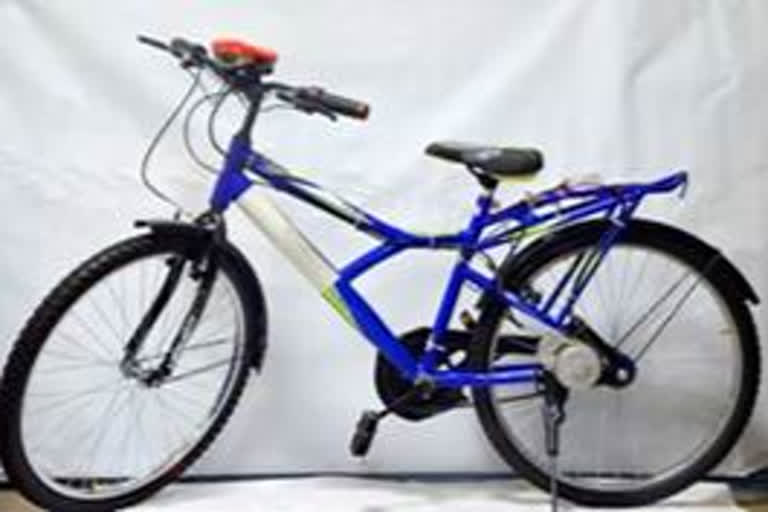New Delhi: In order to provide affordable electric cycles to Indian masses, Indian scientists have developed a nano-material based low-cost rapid charging e-cycle that is expected to drastically cut down the cost of e-cycles in the country, according to officials in the ministry of science. "Indian scientists have used nano-materials to develop Na-ion-based batteries and supercapacitors, which can be rapidly charged and have integrated them in e-cycles. The low-cost Na-ion-based technologies would be cheap and are expected to reduce the cost of the e-cycles significantly," officials said.
According to officials, sodium-ion (Na-ion) batteries have triggered academic and commercial interest as a possible complementary technology to lithium-ion batteries because of the high natural abundance of sodium and the consequent low costs of Na-ion batteries. At present most of the e-cycles available in the Indian market are based on lithium-ion (Li-ion) technology and cost at around Rs 30,000 or more per e-cycle.
These cycles typically take 2-3 hours to charge and offer a range of 25-30 kilometers, which is considered inadequate for rural and hinterland areas. In addition to limited range, these e-cycles are not affordable to target consumers in the rural areas.
IIT Kharagpur scientists developed new technology
Dr Amreesh Chandra, Professor in the Department of Physics at the Indian Institute of Technology Kharagpur, has been researching to develop energy storage technologies, which are based on Na-ion. Dr Chandra and his team have developed a large number of nanomaterials. The team has used sodium iron phosphates and sodium manganese phosphates which they synthesized to obtain Na-ion-based batteries and supercapacitors with support from the Technology Mission Division (TMD) of the Department of Science and Technology (DST), Government of India.
These sodium materials were combined with various novel architectures of carbon to develop a battery. These sodium materials are cheaper than ion based materials, high performing, and can be scaled up to industrial-level production. Also, the Na-ion cell can be totally discharged to zero volt, similar to a capacitor, making it a safer option in comparison to many other storage technologies. Taking advantage of the fact that Na-ion batteries can be charged rapidly, Dr Amreesh has integrated it in e-cycles – an easy, affordable option for the general public.
E-cycles cost to come down to Rs 10-15K
With further development, the price of these vehicles can be brought down to the range of Rs. 10,000 to 15,000, nearly half or one-third of the cost of lithium ion battery based e-cycles that are available in the Indian market. Moreover, these Na-ion-based batteries are easier to dispose of which will also help in addressing the climate mitigation issue.
Officials said the research on the Supercapacitors has been published in the Journal of Power Sources, and a few patents are in the pipeline on the use of these Na-ion-based batteries in e-cycles. This research activity was funded under the Department of Science and Technology's Materials for Energy Storage scheme.
